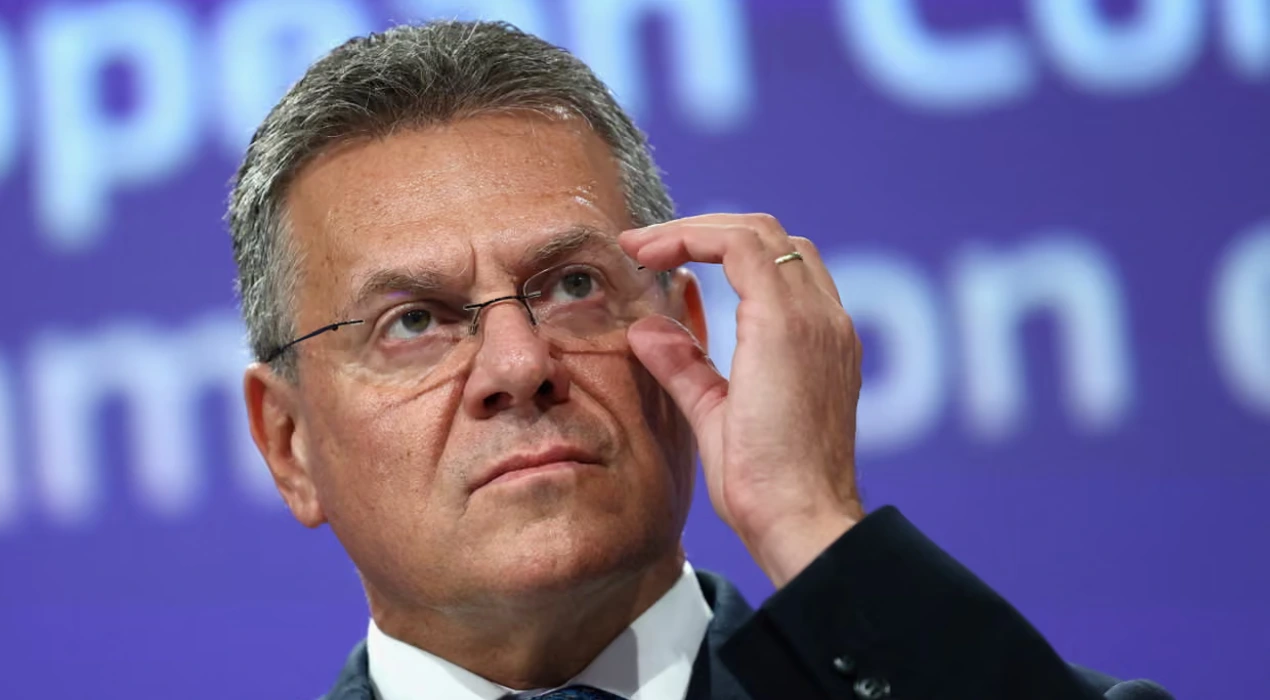Europe (Parliament Politics Magazine) – The EU executive has urged suspending free trade with Israel and sanctioning two far-right ministers, citing Gaza’s worsening humanitarian crisis.
In response to complaints that the European Commission was failing to use its economic power to push the Israeli government, Ursula von der Leyen had already proposed last week to suspend the trade provisions of the EU-Israel association agreement.
However, since Germany, one of Israel’s most important friends, has long been hesitant to adopt such actions, there is no guarantee that EU member states will support the recommendations presented on Wednesday.
The ideas include freezing reciprocal benefits associated with bidding for public contracts and intellectual property rights protection, as well as halting Israel’s privileged access to the European market by reimposing taxes on certain items.
The commission also demanded punishment against 10 Hamas leaders, aggressive Israeli settlers in the West Bank, including Itamar Ben-Gvir and Bezalel Smotrich.
Israeli soldiers unveiled the plans as they continued their offensive in Gaza City, intensifying a confrontation that has claimed the lives of about 65,000 Palestinians since Hamas attacked Israel on October 7, 2023, killing over 1,200 people and capturing 250 captives.
The EU trade commissioner, Maroš Šefčovič, said the proposal meant goods from Israel would be charged at duties equivalent to countries with no free-trade agreement with the bloc.
“We regret having to take this step. However, we believe it is both appropriate and proportionate given the ongoing humanitarian crisis in Gaza,”
he said.
Israel’s foreign minister, Gideon Sa’ar, wrote on X that the European proposals were “morally and politically distorted, and it is to be hoped that they will not be adopted, as has been the case so far”.
The commission has been unable to secure the necessary majority for more modest plans to suspend EU research grants to Israeli organisations. The EU foreign policy chief, Kaja Kallas, suggested on Wednesday that the same divisions remained.
“Although we see that the public opinion in member states is really shifting because of the suffering in Gaza … on a political level … I think the political lines are very much in the place where they have been so far,”
she said.
Germany or Italy would need to back the suspensions of favorable trade or research grants. Finding a weighted majority of 15 out of 27 member states that account for at least 65% of the EU’s population is necessary for both proposals.
A spokesman for the German government responded that Berlin had “not yet formed a final opinion on them” when asked about the trade proposals.
There must be consensus on the penalties imposed on Hamas leaders and Israeli ministries. Certain EU sanctions on Israeli settlers have already been vetoed by Hungary. In anticipation of a veto from Budapest, the commission had refrained from going after Ben-Gvir and Smotrich.
With 32% of Israel’s global commerce in products, the EU is its biggest trading partner. The €68 billion (£59 billion) commercial connection between the EU and Israel is supported by the association agreement, which was formalized in 2000.
How might EU sanctions influence Israel’s Gaza policy?
As Israel’s biggest trade partner, the EU constitutes about one-third of total Israeli exports, estimated at about $18.8 billion each year, meaning that even limited suspension of trade concessions would subject Israeli exports to significant tariffs which may total over $269 million in tariffs each year. Exports like agriculture, particularly dates and citrus fruits, would be especially impacted.
While other aspects of Israel’s economy may be impacted, there is opportunity for increased pressure on an already destabilized Israeli economy, further repeating domestic political calculations about continuing or changing military operations in Gaza.
Sanctions would target more senior officials like National Security Minister Itamar Ben-Gvir and Finance Minister Bezalel Smotrich, who would exceptionally and rapidly demonstrate that their influence advocates for approaches in Gaza and the West Bank that advocate for more hardline policies.

